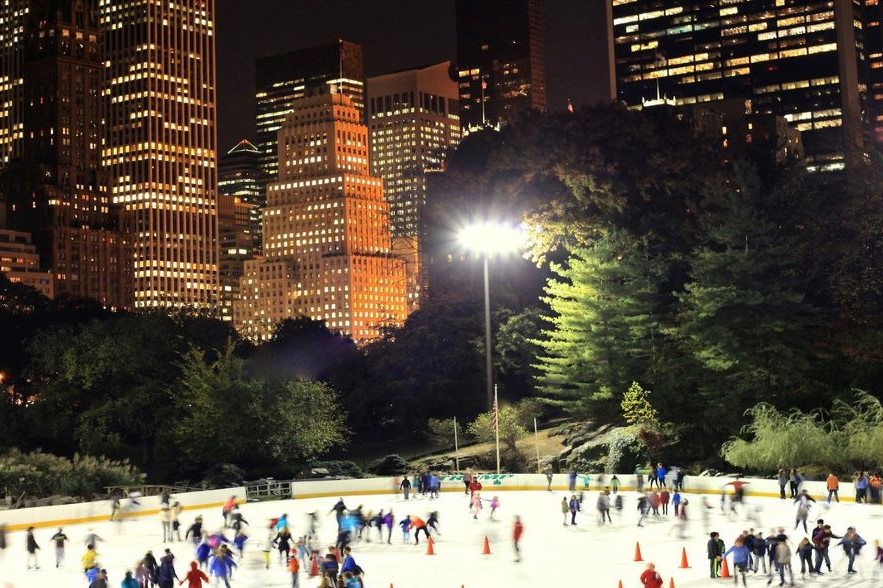
by Penelope Flouret | 15 Apr 2021 | Americas, Donald Trump, Hewitt, Sport, Student Posts, Youth Voices
COVID-19 has hit businesses and tourism hard. But when New York said it would close a famous ice rink, Serena Sabet fought back — and won. This is the first of five articles by students at The Hewitt School in New York City about how COVID-19 has affected that city...
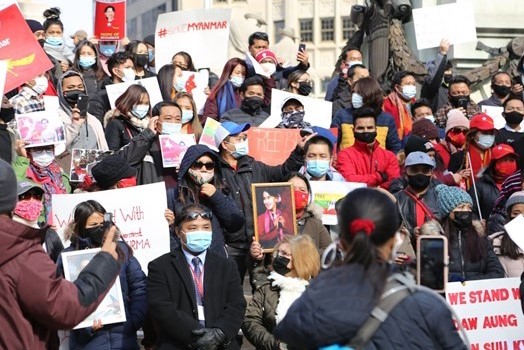
by Evan Wright | 14 Apr 2021 | Asia, Contest winners, Contests, Future of Democracy, Human Rights, Immigration, Indiana University, Politics, Student Posts, Youth Voices
They are 8,000 miles from Myanmar, but Burmese in the U.S. are raising money in a fight for the restoration of democracy in the Asian nation. A recent protest against the military coup in Myanmar, in Indianapolis, Indiana (courtesy of Elaisa Vahnie) This story was a...
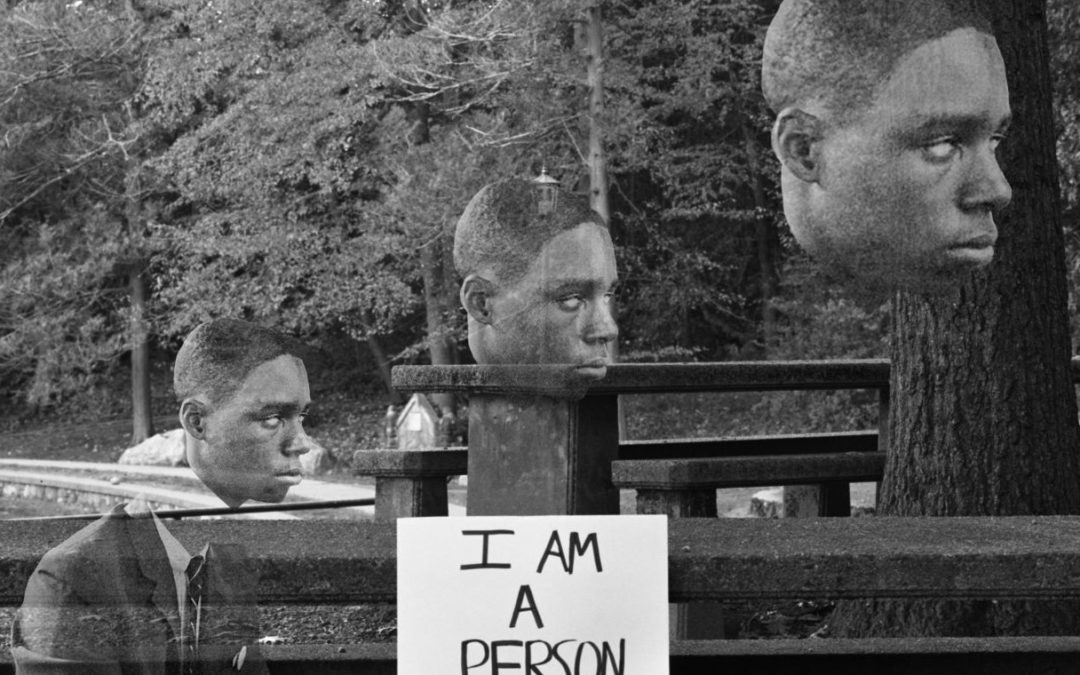
by Lucy Bird | 12 Apr 2021 | Americas, Art, Contest winners, Contests, Educators' Catalog, Human Rights, Student Posts, Westover School, Youth Voices
Inspired by Black Lives Matter protests, I offer a photo essay as a haunting reminder that the fight continues decades after the Civil Rights Movement. This story won a third prize in News Decoder’s Ninth Storytelling Contest. With my photography project, I...
The Black Lives Matter movement has stirred young people around the globe and raised hopes that racism and police brutality against Blacks can be curbed. For many elders, the hopes are tinged by nagging fears that a generation from now race relations will remain strained and injustices will persist. Lucy Bird, a 17-year-old student at Westover School, captures those worries in her haunting series of photos that juxtapose iconic images from the U.S. Civil Rights Movement with glimpses from BLM protests.
Exercise: Ask your students to apply their photo skills to create a visual essay that manipulates existing photographs to capture their concerns about the future.
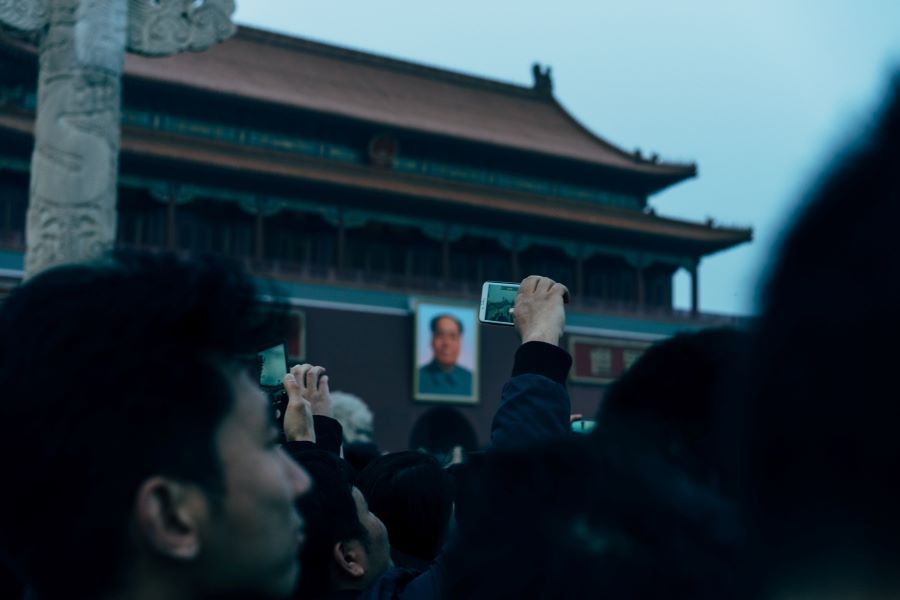
by Li Keira Yin | 7 Apr 2021 | Americas, China, Contest winners, Contests, Culture, Educators' Catalog, Identity, Immigration, Personal Reflections, Student Posts, Thacher School, Youth Voices
Born in China, I decided to study in the U.S. I love my home country but harbor guilt as I become less and less Chinese over time. Photo by Markus Winkler This story was a runner-up in News Decoder’s Ninth Storytelling Contest. Artist’s Statement: I grew up in...
Growing up means eventually coming to terms with one’s upbringing. Doing so can be especially challenging for young people straddling different cultures. In a five-stanza poem, Li Keira Yin of The Thacher School explores the contradictions between the world of her Chinese grandparents and her life at a boarding school in the United States. News Decoder helps young people around the world extend their horizons and learn to appreciate different viewpoints. Some have the advantage of confronting opposing outlooks at an early age, and Yin demonstrates her maturity in reconciling the inherent antagonism between her two very distinct cultures.
Exercise: Ask each student to identify a fault line within their family and to write an essay or poem that is sympathetic to each side.
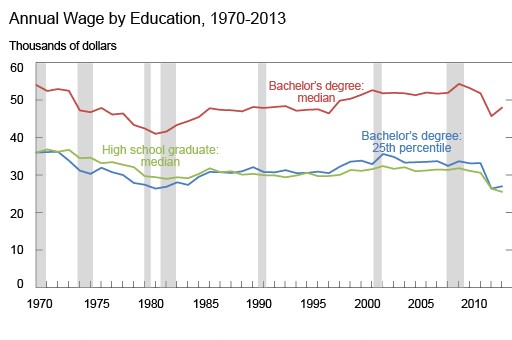
by Xenia Minton | 2 Apr 2021 | Economy, St. Andrew's, Student Posts, Youth Voices
U.S. colleges can cost a lot, and many students take on debt. Is it really worth it, financially, to pay all that money for higher education? Let’s see. (Federal Reserve Bank of New York) It’s the time of year when millions of students in their last year...
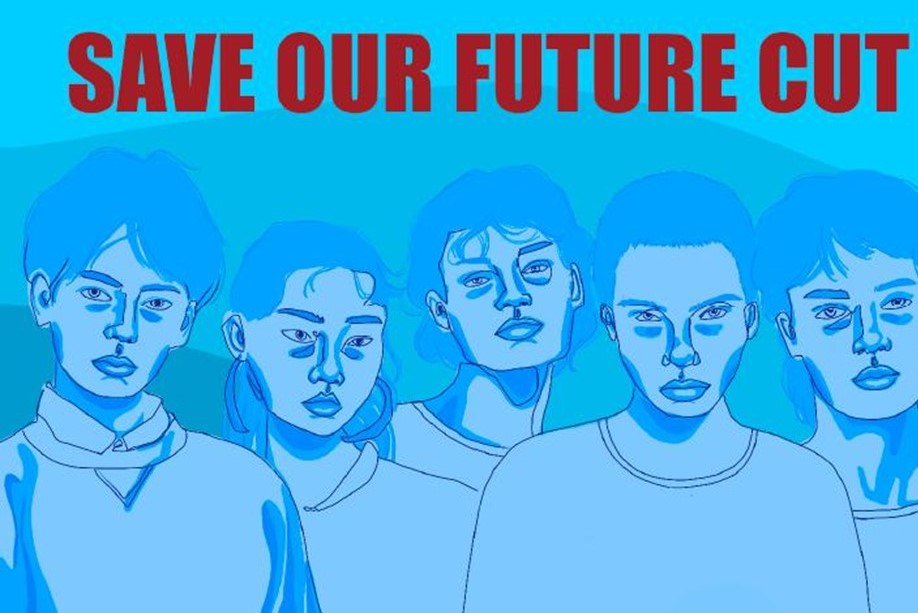
by Akvile Seleviciute and Auguste Sturlyte | 31 Mar 2021 | Art, Climate change, Contest winners, Contests, Environment, European School Brussels, Student Posts, Youth Voices
Students in Brussels are engaging in an art protest to show the world that it’s time to make far-reaching changes to avert a climate catastrophe. A sketch of “The Writing’s on the Wall,” by Amélie Zimmermann This story was a runner-up in News...
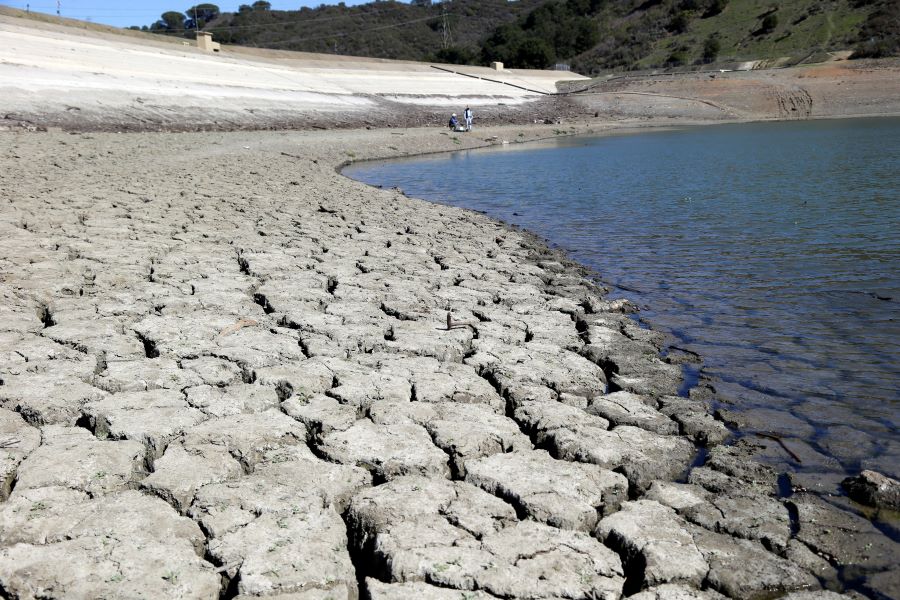
by Li Keira Yin | 25 Mar 2021 | Americas, Educators' Catalog, Environment, Health and Wellness, Student Posts, Thacher School, Youth Voices
California’s water supplies are being squeezed by climate change. By better capturing, recycling and distributing water, the state can avert a crisis. A dry reservoir bed in Cupertino, California, 13 March 2014 (AP Photo/Marcio Jose Sanchez) Water has long been...
Beset by raging wildfires and drought, Californians could be forgiven for thinking a climate Armageddon is upon them. The easy assumption would be that global warming means the most populous U.S. state does not have enough water for its many farmers and citizens. Keira Yin of The Thacher School provides a fuller picture by interviewing a water resilience expert and probing data. She concludes that stepped-up efforts to better capture, recycle and distribute water could go a long way towards ensuring the state can fend off the effects of climate change. Ask your students to consider how climate change is affecting water supplies in your region and to identify what the government is or could be doing about it.
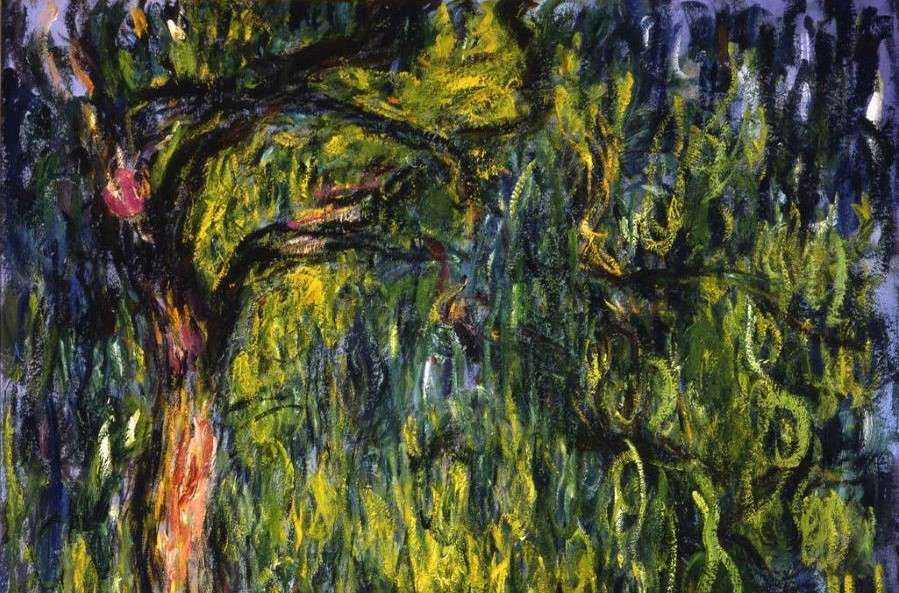
by Santiago Riveros Crosby | 16 Mar 2021 | Educators' Catalog, Environment, Gimnasio Los Caobos, Student Posts, Youth Voices
An old man and his great-grandson look out over a city—devoid of trees. Is this nature as our offspring will know it? Claude Monet, “Weeping Willow” (1918), Columbus Museum of Art, Wikimedia Commons Santiago Riveros Crosby is a student at News Decoder...
Climate change poses an existential threat to humanity that hangs like a dark cloud over students. Add to that a pandemic that has killed millions and turned students’ lives inside out, and you have a one-two punch to the mental well-being of even the most resilient students. Santiago Riveros Crosby of Gimnasio Los Caobos has both climate change and COVID-19 in mind in his very short story that takes us to the year 2060 and a landscape devoid of trees, viewed by a masked boy and his great-grandfather. Writing tightly is tough, but in just a few words, Crosby evokes a young generation’s angst. Ask your students to express their feelings about global warming and the pandemic — using the medium of their choice.
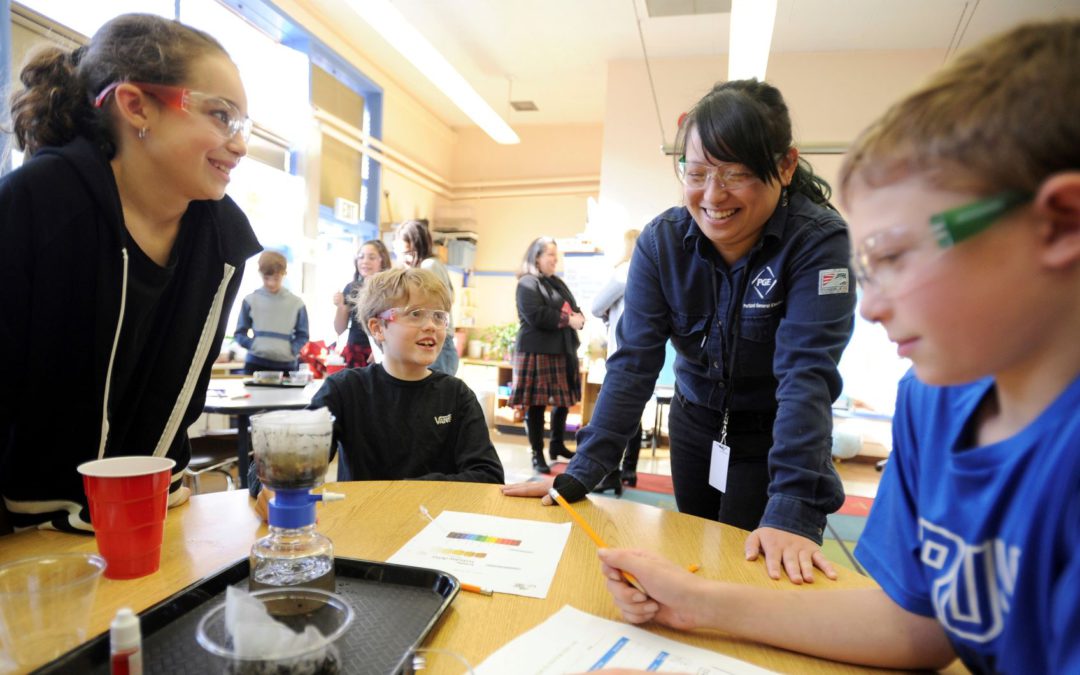
by Lucy Jaffee | 24 Feb 2021 | Americas, Climate change, Contest winners, Contests, Educators' Catalog, Environment, La Jolla Country Day School, Student Posts, United States, Youth Voices
Most Americans want schools to teach about global warming. But skeptics and lack of teacher training make it hard to implement climate change education. Students learn about water filtration as part of their climate literacy curriculum in Portland, Oregon, 30 January...
Climate deniers have lost the political high ground in the United States, but the struggle to combat global warming has only just begun. Lucy Jaffee of La Jolla Country Day School explores why teaching about climate change can help reduce carbon emissions, but also why U.S. schools are having such a hard time fostering climate literacy. She interviewed a local expert and two teachers in her examination of the challenges schools face in meeting the expectations of parents who want climate change in the curriculum. Ask your students to explore how climate change is being taught in their school, and if not, why not?

by Christina MacCorkle | 26 Jan 2021 | Americas, Asia, Contest winners, Contests, Donald Trump, Educators' Catalog, Future of Democracy, Human Rights, Joe Biden, Politics, Student Posts, Thacher School, Youth Voices
A pro-democracy movement in South Korea offers lessons to two U.S. social movements — against police brutality and for a defeated ex-president. Black Lives Matter protesters hold their phones aloft in Portland, Oregon, 20 July 2020. (AP Photo/Noah Berger) This story...
Sociologists are the first to admit they are apt to speak their own tongue, so reporting on sociological research can tie even experienced reporters in knots. And high school students are not always interested in events of half a century ago. So it’s a rare pleasure when a student connects a pro-democracy movement in South Korea during the 1960s and ‘70s with social movements in the United States today, and renders sociology understandable to the untrained ear in the process. Christina MacCorkle of The Thacher School takes academic research about a country far from her school’s California campus and connects it to current events in the U.S., using simple language to convey complex academic arguments. Many students are trained to write academic essays, but MacCorkle enlightens those of us outside of academia.










